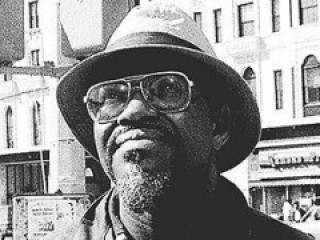
Claude Brown biography
Date of birth : 1937-02-23
Date of death : 2002-02-02
Birthplace : New York City, New York, US
Nationality : American
Category : Famous Figures
Last modified : 2011-06-16
Credited as : Author, Manchild in the Promised Land, Children of Ham
4 votes so far
Acknowledging the damaging effects of drugs like heroin and gang violence on his community and his friends, he decided to change. He knew he had to get out of Harlem. He moved away from Harlem, his heart broken seeing all his friends "strung-out" by drug addiction. He felt Harlem wasn't for him anymore. After being one of the "hippest cats" (as he says in the book), he decided to turn away from it and move down to Greenwich Village, where he could start over. For the first time in his life, he decided to get an education and eventually began attending night classes at a high school downtown, supporting himself by working as a busboy and deliveryman and at other odd jobs. Eventually, he went on to graduate in 1965 from Howard University (where his professors included sociologists E. Franklin Frazier and Nathan Hare), and later went on to attend Stanford and Rutgers law schools, but left when the lecture circuit proved more lucrative than law.
Brown would go on to publish a second book, Children Of Ham, which explores the lives of several black teenagers from Harlem who escape the clutches of heroin. By comparison to his first work, it was a failure.
Brown spent most of his professional life as a full-time lecturer, but also became increasingly involved in critical urban issues, especially with respect to at-risk black adolescents. This lifetime concern led him to become deeply involved in criminal justice and rehabilitation issues, as he visited juvenile detention centers and prisons in search of answers to the question of what was motivating the much more violent, feral behavior of youth gangs and underage criminals prowling America's inner-cities, a plague that seemingly became progressively worse with the passage of time. Essentially, Manchild in the Promised Land was written to demonstrate how someone could overcome great odds to become in his case, a lawyer.
His ultimate conclusion was that American society had abandoned these young individuals, causing a profound sense of alienation and ostracism, which in turn led to futile outbursts of excessive, wanton violence and criminality. He remained critical of what he perceived as the societal failures of addressing these existential crises afflicting African-American youth-especially those residing in urban areas-and more broadly, underserved, alienated American youth in general.
Claude Brown died of respiratory failure in 2002.
















